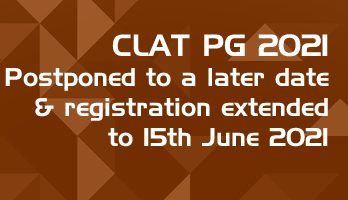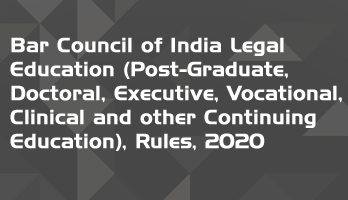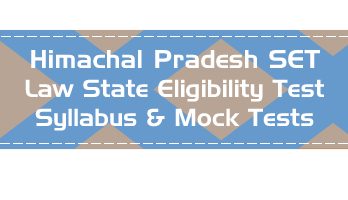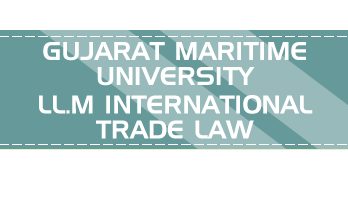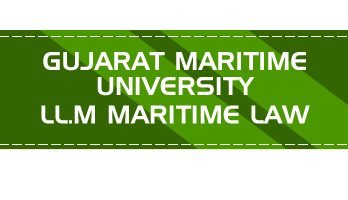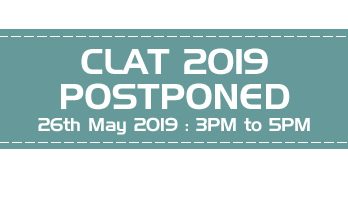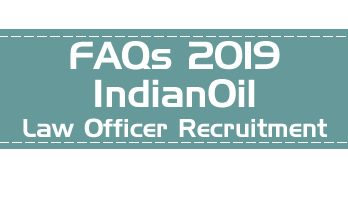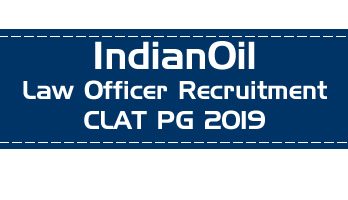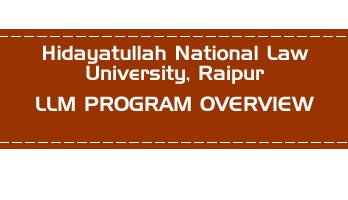Q : Which foreign university provides an LLB+LLM integrated degree in IPR, after which, one can practice in India?
Ans :
[1] First of all, you need to check which of the BCI recognized foreign universities offer the LLM & specialization that you are interested in. (See link below for list and you should check the websites of the colleges / Univs)
Since BCI recognizes LLB / Bachelor’s degree from these Universities, integrated programs that offer LLB + LLM or specialization are also recognized. (The basic degrees recognized by the BCI is in the list)
[2] But completing your course from these Universities does not automatically allow you to enroll as an advocate in India. You have to take a qualifying exam conducted by the BCI once every year.
Syllabus and details of the exam are in the link below.
[3] After clearing the qualifying exam, you can enroll as an Advocate with your state Bar Council and start practicing for up to two years, within which you have to clear the All India Bar Exam. (This is common for everyone, whether the LLB degree is from India or from a foreign University.)
*Note – BCI may at some point look at doing away with the AIBE for foreign degree holders who have cleared the ‘Qualifying exam’; considering that both these exam are conducted by the BCI and are intended to ensure knowledge of Indian Laws. But as of now, we can go with the assumption that the AIBE is also a mandatory requirement.
List of foreign Universities recognized by the BCI :
Q : After doing an LLB course through distance, can I practice as a tax consultant?
Ans :
No and Yes.
No : There is no BCI recognized distance LLB in India. There are only full-time courses.
Yes : You can be a tax consultant, but an LLB is not necessary for that. There are other formal – informal qualifications and certifications focusing on taxation.
Also, nothing can match actual, real-world, practical experience. So an intern-ship or work experience with a practicing Chartered Accountant would be helpful.
Q : “The Indian Constitution protects the rights of children, women, minorities and weaker sections.” How can one elaborate on the basis of case studies?
Ans :
Start with
- The Constitution – List down all the Articles which specifically deal with protecting and advancing the rights of children, women, minorities and weaker sections.e.g. Children’s rights & protection : Articles 15, 21, 23, 24, 39, 42 etc. Women’s rights and protection : Articles 14, 15 etc. Weaker sections : Articles 16, 17, 23, 46, 330 etc.
- Legislative Actions – List down all the various laws and acts that have been passed for protecting and advancing the rights of children, women, minorities and weaker sections.e.g. Indecent Representation of Women (Prohibition) Act, 1986, National Commission for Women Act, 1990, Prohibition of Sexual Harassment of Women at the Workplace Bill, 2010, Maternity Benefit Act, 1961 (Amended in 1995), Juvenile Justice (Care & Protection of Children) Amendment Act, 2006, Prohibition of Child Marriage Act, 2006, Child Labour (Prohibition & Regulation) Act, 1986, The Scheduled Castes And The Scheduled Tribes (Prevention Of Atrocities) Act, 1989.
Then go to
- Judicial Actions – Review the landmark Supreme Court and High Court cases where the Constitutional Articles or the Legislative Acts (from your previous lists) have been interpreted / upheld / struck down / reviewed.There are also a few cases where the Courts have asked the Legislative bodies to create new laws or modify existing laws.
This should give you a good list of case studies.
Q : How do I fill a complaint in consumer court against SBI?
Ans :
First, go through this document:
Q : Why does the Bar Council of India not recognize a Bachelor of Law (LLB) degree obtained through distance education?
Ans :
LLB is a ‘professional’ degree that allows graduates to practice after graduation.
By design, the curricula of all ‘Professional’ degrees have a theoretical aspect + a practical and/or experiential aspect.
The practical and experiential aspect covers the application of the theory in real world situations.
For LLB, there are moot courts, class discussions & debates, viva exams, practical exercises in drafting & pleading, court visits to observe and document proceedings; such practical aspects may not be possible in a distance education model.
Hence, the Bar Council of India mandates that all LLB courses in India should be conducted in a full-time mode only.
Thanks for the A2A.
Q : Is LLM mandatory after completing LLB in order to become an advocate?
Ans :
Nope.
To become an Advocate:
- Complete LLB (3 years or 5 years) from any BCI recognized college.
- Enrol with your State Bar Council after LLB
- You can start practicing immediately
- Clear the AIBE – All India Bar Exam within two years of starting practice
- If you don’t clear the AIBE within two years, you will have to ‘stop’ or ‘pause’ practicing and restart after clearing the AIBE.As of now, (Jan 3rd ), there is no age limit or limit on the number of attempts for clearing the AIBE.
Then why LLM ?
- It is a ‘specialisation’ option, where you can focus and specialize academically in a particular area of law
- LLM is also useful if you are planning to take up teaching at some point
- A stepping stone for eventually pursuing a PhD
- If you are pursuing a corporate career, a LLM can help you stand out of the crowd
If you are taking up the All India Bar Exam this year . . .
We at LawMint have put together a online prep-pack for the AIBE XII for unlimited & target practice to clear the AIBE.
If you are taking the Bar exam this year, do check out our online prep packs
Q : What is the maximum age for enrolment of advocates in the bar council of India and Maharashtra & Goa?
Ans :
No upper age limit.
First of all, there is no specific upper age limit for taking up LLB.
Once you complete your LLB, there is no upper age limit or limit on the number of attempts for clearing the AIBE – All India Bar Exam, which is the prerequisite for practicing as an advocate anywhere in India.
And, before taking up AIBE, you have to register with your State Bar Council as a practicing advocate – as a pre-requisite for taking up the AIBE, so there is no upper age limit for enrolment of advocates in the bar council of India and Maharashtra & Goa. (or any other State in India)
** You can practice for two years as an advocate without clearing the AIBE, by registering with your state Bar Council after LLB. However, you will have to stop practice after two years and recommence once you clear the AIBE.
This is the list of all the State Bar councils across India (because the answer above applies to all State Bar Councils across India) :
Q : Is there a limit to the number of times you can take the bar exam?
Ans :
It would be good to add a little bit of context into the question to make it relevant. This question is very generic, since it just refers to ‘Bar exam’ without mentioning the country / state.
I believe all the answers below are correct, since each one is contextually correct for specific states and countries.
From an India perspective:
Currently there is no age limit or limit on number of attempts for the All India Bar Examination (AIBE)
Regards,
Q : Is BBA LLB given less preference compared to BA LLB, I wanted to take BA LLB but didn’t get a seat in that so I took BBA LLB?
Ans :
No. Doesn’t make any difference . . .
When you decide to practice or you pursue a corporate career after your LLB, your LLB degree is what counts. You get brownie points for
– your LLB scores,
– the pedigree of the Institution where you have studied,
– your co-curricular / extra curricular activities during the period of your LLB
Your basic graduation will not matter much, especially if you are completing a integrated 5 year LLB.
In case of a 3 year LLB, if you are a fresher applying for a job after your Law degree, some companies may take into consideration your graduation scores just as a differentiator while filtering applicants. Even here, BA/ BSc/ BBA/ BCom doesn’t make a difference only your marks.
Q : Is it fine to take the help of a consultant to take admission in UK universities?
Ans :
It is fine, but it can be expensive . . .
Remember, a consultant does not guarantee admissions, but will merely guide you through the entire process.
Advantages:
The consultant will know the process, the application dates, the forms, the documentation required and provide you with templates for most of the stuff.
If they already have placed students previously, they will know what works and what doesn’t.
Disadvantages:
Good consultants are expensive.
Consultants will try to steer you towards colleges that will most likely give you admission; and not necessarily the best colleges – since this will boost their success rate.
Consultants may also have a commission or financial incentive agreement with some colleges, so they will try to steer candidates towards the colleges that give them the best deal.
My suggestion . . .
If you don’t have time or don’t have the inclination to do your own research, you can use a consultant.
Else, these days there are so many forums and websites which provide all necessary information; so you can do the research and ground work yourself.
Go talk to a consultant, get clarity on what they offer, what they promise etc. and then take a call.
Q : Is BA LLB and BBA LLB equal in terms of job prospects?
Ans :
Yes.
BA LLB or BBA LLB doesn’t matter; because you are being hired on the basis of your LLB qualification.
What will matter is your overall scores. Since that will be a differentiating factor when you are applying as a fresher.
Q : I want to do litigation but I took BBA LLB as I didn’t get a seat in BA LLB in IPU, will I be able to do litigation after BBA LLB?
Ans :
Why not ?
The BA / BSc / BBA / BCom part doesn’t matter as far your eligibility to be a Lawyer or practice law is concerned. It is the LLB part which matters.
Then too, the college that you graduate from doesn’t mater if you are looking at independent practice.
On the other hand, if you are looking at a corporate career, the college will matter – since top colleges have a placement process to help you get a head-start.
I would go as far as saying that to practice law, there is no difference between a 3 year / 5 year LLB; other than the fact that you save one year by taking up a 5 year LLB; and you can start your practice earlier.
[3 year LLB requires you to be a graduate in any stream – so 3 years min for graduation + LLB 3 years = 6 years. The 5 year LLB program is an integrated dual degree, where you get a BA / BBA and an LLB in 5 years, thus saving one year.]
Q : Which countries in the world are the best for pursuing an LLM (Master of Laws) program?
Ans :
Traditionally . . .
The countries that are popular with Indian students for pursuing LLM are the US, UK and Singapore.
Yes, there are some students who may take up some LLM courses in European countries, but that depends on your ultimate objective after LLM; and also where your funding is coming from.
The ground reality seems to be :
- You will need a Bachelor’s degree in Law from these countries to be able to take the Bar exam / practice as a Lawyer there.
- While there are some reciprocal arrangements for Indian LLB to be recognized in these countries; it is easier said than done. There will be additional exams that you will have to take; to get your LLB recognized in these countries.
- The employment scene for an Indian students, with an Indian LLB and a LLM from any of these countries is a challenge.
- The cost of a LLM program – with fees & stay, not considering any scholarships, will work out to anywhere in the range of INR 50 lakhs in any of these countries (Singapore may be marginally cheaper.)
On the other hand, if you already have figured out the funding; and are willing to explore the options after LLM, I would suggest any of these three countries : Singapore, UK, US.
Note: Also factor in the recent political developments in the US and UK, job prospects – work permit after LLM may be somewhat tricky.
Must read ! – This is a good summary of the entire LLM in UK scene. Though this article is from 2008, it is still very relevant.
Q : What are the scopes after pursuing LLM in International Law except teaching?
Ans :
To be frank . . .
Generally, the primary objectives for taking up an LLM is
(1) You are an LLB, practicing or employed – you take up LLM to either specialise in an area that is relevant to your practice or employment.
(2) You are an LLB; and you take up LLM to add an additional degree to your name (which is helpful in differentiating you from the others with just an LLB)
(3) You are an LLB; you take up LLM since you intend to get into academics; and your next step after LLM would be a PhD.
So, look at the areas where a specialization in International Law would be useful; apart from academics.
While MNCs do have openings for Legal Officers, they generally do not hire freshers. They generally hire experienced Lawyers, who have relevant experience / practice in the required area.
Most MNCs will prefer to have an external Law firm on retainer for taking care of any major legal activities – including areas that will need specialized knowledge in International Law.
IMHO, after an LLM in International law, you should focus on opportunities with established law firms with an International Law practice.
Q : Can I change my degree course after 1 year? If yes, how can I do that?
Ans :
Depends on the course and the college / University rules . . .
Like Vivek and Saurabh have mentioned, it is possible only in certain circumstances and only with a few courses.
- BE / BTech – the initial semester(s) are usually the same fundamental subjects for all streams. So if there are vacant seats in other streams, students could make a switch.
- MBA – mostly similar case since the fundamentals are covered in the initial semesters and you could switch if college / University permitted.
In most other situations, you will have to repeat a year if yo decide to switch streams.
But all the answers here will be theoretical and incomplete . . .
because the possibility of a change will depend on the course + college + Uni rules. So would be preferable to talk to the academic in-charge / administrators of the college.
Q : Does Lucknow University accept CLAT scores for a 3-year LLB program?
Ans :
Nope.
For the Lucknow University 3 year LLB program under the faculty of Law, there is a separate entrance test.
Pattern : 100 multiple choice questions
Time : 90 minutes.
Syllabus :
– Indian Polity: Structure and Functions
– General Awareness
– Logical Aptitude
– Mental Ability
(For Logical aptitude & Mental ability, this would be on the lines of the questions asked in the Banking exams.)
[1] First thing, go to the Lucknow University website PG admissions page (LLB 3 years is a PG program) and read the prospectus + other info :
Q : Can I do LLB from correspondence?
Ans :
One line answer : “There are no UGC / Bar Council recognized correspondence or part-time LLB programs in India at this time.”
As stipulated by the BCI – UGC – Universities; the LLB course has mandatory practical and experiential components, such as moot courts, court visits, debates, presentations, viva-voce, external assessments, hand-written submissions.
Hence, the BCI mandates that only full-time LLB programs are recognized.
Q : What are the important subjects to concentrate for qualifying in LLM in India?
Ans :
This is a long answer, will try to keep it simple 🙂
There are three main types of LLM admission processes in India.
[1] Tier-3 LLM programs, where the demand is usually less than the total number of approved seats – admissions here is usually on a first-come-first-admitted process.
The only requirement here would be to meet the minimum cut-off marks in your LLB scores.
[2] Tier-2 LLM programs, where the demand is more than the total number of seats; here the admission can be through ranking based on LLB marks (and possibly a personal interview.)
There are also some colleges that have an entrance test, which is typically similar to the Tier-1 LLM entrance tests. (MCQ based)
[3] Tier-1 LLM programs, such as from the National Law Schools, Delhi University. Here the demand is significantly more than the number of seats and the entrance is through a structured entrance exam such as the CLAT-PG, DU-LLM extrance and AILET-PG
Let us focus on the 3rd type – the tier 1 LLM programs.
The syllabus and pattern for the CLAT-PG was :
a. Maximum Marks : 150
b. Duration of CLAT-2017 Exam : 02:00 Hours
c. Multiple-Choice Questions : 150 questions of one mark each
d. Syllabus : Questions will be asked from the following areas of law:-
(i) Constitutional Law : 50
(ii) Jurisprudence : 50
(iii) Other law subjects : 50
(such as Contract, Torts, Criminal Law, International Law, Environment Law and Human Rights.)
e. Negative Marking : 0.25 mark will be deducted for each wrong answer
From a preparation perspective, the order of priority should be in the descending order of the weightage of topics.
(i) & (ii) alone will cover 66% of the exam.
If you look at the ordering of the other topics in (iii), they represent the most ‘frequently used’ legal areas. i.e. you will see more number of cases on contracts than on human rights.
So the number of questions will also be in descending order. Plan your preparation accordingly.
For DU-LLM entrance, it was
a. Maximum Marks : 400
b. Duration of DU-LLM Exam : 02:00 Hours
c. Multiple-Choice Questions : 100 questions of four marks each
d. Syllabus : Questions will be asked from the following areas of law:-
(i) Constitutional Law of India
(ii) Administrative Law
(iii) Criminal Law & Criminal Justice Administration
(iv) Intellectual Property rights
(v) Cyber Law
(vi) Corporate Law
(vii) International law
(viii) Environmental Law
(ix) Gender justice
(x) Family Law
(xi) Jurisprudence
(xii) Socio-Legal Research Methods
e. Negative Marking : 1 mark will be deducted for each wrong answer
* Section-wise weightage are not specified for DU LLM
Here, the section-wise cut-off are not specified. We’ll have to analyse the past 3 – 4 years question papers to understand the pattern.
Bottom line : All these exams are based on MCQs. So the best way to prepare for them is to keep practicing. Take as many mock tests as possible.
(We will shortly publish an article analysing the CLAT-PG, DU-LLM and AILET-PG on
Q : Is it mandatory to get enrolled in the Bar Council, although I want to study an LLM from abroad?
Ans :
Nope.
You need to enrol with the Bar Council only when you want to :
[1] Take the AIBE – All India Bar Exam
[2] and practice as an advocate
If you are taking up any full-time employment, taking up higher studies or pursuing any other profession or business (which does not need you to be a practicing Advocate), you don’t need to register.
However, I would strongly recommend that you register with the state Bar Council and take up the AIBE at the earliest possible opportunity.
You will need to clear the AIBE at some point in the future when you want to practice; and it is easier to complete it when you are still fresh with your LLB subjects.
After you register and clear the AIBE, you can request the state Bar council to put your enrolment in a ‘Suspended’ state while you pursue higher education or any formal employment.
However, if you don’t have the time to take up the AIBE, since you are proceeding abroad, you can always come back and take the Bar Exam; at which time will need to register with the State Bar Council.
You can read the FAQs about the AIBE at this link :
Q : In law courses (BBA LLB), there are projectspresentations. How should I tackle them?
Ans :
There are two ways of tackling them . . .
(1) Treat them as a necessary evil, which needs to be completed, with the least possible time and effort
So just do a quick and dirty job – if possible by copying from a senior’s submission, something you found on the web or using one of the digest-guide books available in the market.
(2) Treat them as an opportunity to learn and to practice your analytical, writing & presentation skills and do a thorough and original job.
While one can pontificate that you should always choose option (2) since it is the most ideal way, your choice will depend on the time & circumstances.
We may start off with the best intentions and choose (1) and realise that we don’t have the time, so we slowly shift towards option (2).
Summary : Depends on whether you intent is to get the job done – (1) or do a perfect job (2)
And both approaches are valid, depending on what other things are on your plate at that time.


